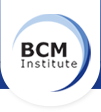CC-5000: Crisis Communication Expert Implementer
Training Approach (Blended vs Hybrid)
Blended Learning:
Attend One (1) E-learning | Six (6) 3 hour sessions + Assignment | Examination
Hybrid Learning
Attend One (1) E-learning | Two (2) 3 hour sessions + Assignment | Two (2) Days Onsite Classroom | Examination
Visit CC-5000 (hybrid) course page for more details.
Course Description
Crisis Communication Blended-Hybrid Learning Course (BL-HL-CC-5)
The Crisis Communication Blended Learning is a comprehensive Crisis Communication course equivalent to the international certification Crisis Management Expert Implementer. Its combination of online and face-to-face interaction allows busy crisis management executives to study with minimal disruption to their schedules.
The course is divided into four modules where each module allows you to understand crisis communication fundamentals, deploy crisis communication templates, manage a crisis management team, execute crisis communication and develop a crisis simulation exercise.
It is expected to be completed within eight weeks for the blended learning approach and five weeks for the hybrid approach.
MODULES
Module 1 – Crisis Communication E-Learning Courses
Crisis Communication Fundamentals E-learning
Note: Participant is expected to complete Module 1 within 2 weeks after registering before pursuing Module 2.
Module 2 – Facilitated Online Workshop
Participants will be allowed to practice the fundamental concepts of crisis communication, conduct a risk assessment and relate to ISO 31000 Risk Management, understand the business impact analysis, select a crisis communication strategy and implement, exercise and test the crisis communication plans. They would be provided actual templates of these plans to familiarise and use as hands-on practice.
These are to be done after pre-reading materials and guidance are disseminated. Participants are to attempt the templates for each concept per stage.
This hands-on practice would be facilitated by senior industry practitioners that include current crisis management managers, consultants and vice presidents from international institutions. This would be done via our online facilitated workshops.
To know more about what is covered, you may like to check out here.
Note: Participants are required to submit their assignment for each stage and will be assessed at the end of each stages’ session (there are a total of 2 sessions for Module 2).
Module 3 & 4 – Facilitated Online Workshop
In Module 3, participants will learn how to formulate a crisis communication team, manage a crisis communication flow of events, set up command centre operations, and learn more about crisis communication good practices and crisis leadership.
Similar to Module 2, pre-readings and guidance notes would be shared before participants join a 2 x 2-hour facilitated online workshop on different days.
To know more about what is covered in the module, you may like to read more here.
It would then be followed up by Module 4, where participants will be learning how to maintain crisis communication (CC) awareness, review CC programme, conduct advanced-level CC testing and exercising and design and develop CC exercises (both integrated and simulated).
Participants would be provided pre-readings and guidance notes before they present in the 2 x 2-hour facilitated online workshop.
To know more about what is covered in the module, you may like to check out this page.
Module 3 & 4 – Hybrid Learning (Onsite)
Starting in 2023, this course will be offered onsite for Module 3 and Module 4 in a designated capital in Asia. The content is similar, except the course is run over two days (click here to find out more)
Yes, I am interested. I want to know more about what this course has to offer!
Pricing
| Price | SGD3,850 SGD150 (Certification Fees are to be paid during application after participants has passed their Qualifying Crisis Communication Certified Expert (CCCE exam) |
|---|---|
| Estimated Duration | Lapse period of 8 weeks |
| Certificate | 8 Certificate of Completions (COC) 1 Crisis Communication Certified Planner (CCCP) Certificate* *Upgradable to Crisis Communication Certified Expert (CCCE) subject to proof of 3 Years of Crisis Communication Experience |
View Schedule
How Do I Sign Up?
Fill out the form on this page to save your spot or send an email to sales.ap@bcm-institute.org
Certification
Crisis Communication Certified Planner (CCCP) Certification is awarded to all who complete all 4 modules of the CC-5000 Blended Learning course.
Crisis Communication Certified Expert (CCCE)  Certification is awarded to participants who successfully completed all Blended Learning sessions and passes the live assessments and pass the Qualifying CCCE examination (for Singaporean and Singapore PR participants) or the end of module assessment, sends in an application detailing at least 3 years of CC experience, and satisfies and meets the experience requirements of the independent certification body.
Certification is awarded to participants who successfully completed all Blended Learning sessions and passes the live assessments and pass the Qualifying CCCE examination (for Singaporean and Singapore PR participants) or the end of module assessment, sends in an application detailing at least 3 years of CC experience, and satisfies and meets the experience requirements of the independent certification body.
Objectives
This course will provide participants with the concept and knowledge, which will enable them to:
- Have a good overview of the crisis communication (CC) definitions and its relationship to BCM, CM and DR.
- Understand the key element of the CC framework.
- Understand the implementation objectives, activities and key deliverables for each stage of the CC planning methodology.
- Initiate and implement a CC program.
- Identify and assemble the CC team members.
- Assign the roles and responsibilities for each of the CC team member.
- Identify audiences, stakeholders and interested parties.
- Consolidate and analyse the list of crises for Executive Management’s approval.
- Establish level of crisis.
- Identify and develop the relevant CC strategies.
- Develop media handling techniques and plan.
- Develop and implement press release and holding statements.
- Drive organisational-wide crisis communication programmes.
- Learn to track and trace incident events and prioritize decisions and activities.
- Adopt a CC for social media during crisis.
- Learn how to develop an organization-wide CC awareness, training exercising and testing program.
- Implement audit and assessment program to ensure CC plan effectiveness.






